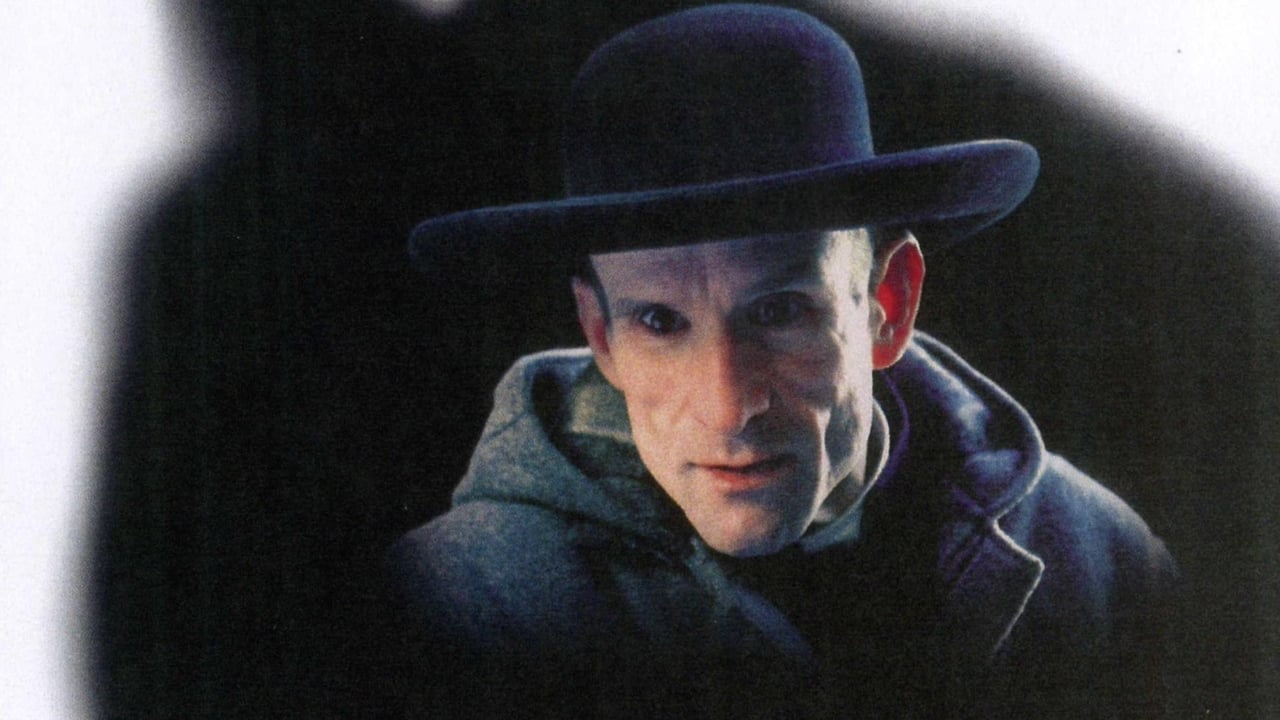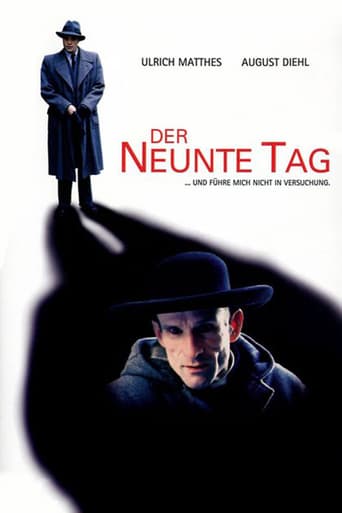

I like the storyline of this show,it attract me so much
... View MoreThis is one of the few movies I've ever seen where the whole audience broke into spontaneous, loud applause a third of the way in.
... View MoreThe biggest problem with this movie is it’s a little better than you think it might be, which somehow makes it worse. As in, it takes itself a bit too seriously, which makes most of the movie feel kind of dull.
... View MoreClose shines in drama with strong language, adult themes.
... View MoreThis is a truly powerful film. Faith is not a prerequisite to having an almost religious experience in viewing it.
... View More"Der neunte Tag" or "The Ninth Day" is a German movie from over 10 years ago that runs for slightly over 90 minutes and was directed by Volker Schlöndorff who is still pretty famous here in Germany for directing the Oscar-winning "Die Blechtrommel". I was very underwhelmed by this one and while I am definitely not the greatest Schlöndorff fan, I can't deny he has made a couple good films and I would include this one here also as one of these I deem superior to "The Tin Drum". The best thing about it is definitely the acting. Matthes and Diehl bring their A-Game and other actors probably could not have delivered better portrayals. Both certainly elevated the material and I think that, at least back then, both count to the best Germany had to offer in their respective age groups. Hilmar Thate played a supporting character and I felt he was very good too. Then again, I may be a bit biased here as I have always liked him.The story is about a priest who is in jail at a concentration camp during the days of Nazi Germany. A German army commander offers him a deal: If he writes a letter to the Pope and encourages the Pope to approve of German politics during that era, then he (Diehl) would let him (Matthes) free and also save many of the priest's peers from being killed at the concentration camp. Of course, the priest does not believe a bit in the Nazi's claim to being the dominant race, so it is all a decision of his conscience and there is a lot of talk about the priest acting like a Judas for the good cause and for saving people's lives. Will he finally do it? I won't tell you. You need to watch for yourself.Another aspect I believe that is interesting about the movie is the fact that the Vatican is in Rome and people who know about the Italian political position in the 1930s will know that this may have complicated things a lot. Unfortunately, the basics are a lot more interesting in this movie than the actual story. The writers certainly could have made a better job here and I cannot say I approve of the script. The story offered so much more and even if the German Film Awards apparently disagree, I have to say that they did not achieve what they could have achieved here. The only true reason for watching this film is the political context, the real story it is based on and the convincing performances from the 2 lead actors. All in all, I give "Der neunte Tag" a thumbs-up and still call it a missed opportunity. Go check it out.
... View MoreIt is easy to criticize the actions of others using the clarity of hindsight but realistically Nazis were humans and given the correct conditioning almost any human could be a Nazi. This is a story about one of the few who refused to capitulate and paid a price for it.Some people here have complained about the film being catholic propaganda, something tells me they complain not when they view other propaganda but it is instead the fact that this film portrays some members of the church in a positive light that instead incites a reaction of anger. I don't know what is more hilarious, the fact that they themselves are ignorant of history or that they themselves would be goose-stepping in line to protect their well being. One says that the referenced event (the sending of non Aryan Christians to camps) does not occur for another 3 months. He acts as if this was the first injustice the Nazis ever bore down on anybody. From the beginning of their rule the Nazis destroyed all those that opposed them, yes the more noble thing to do would be to speak out but if by speaking out you only get people killed that doesn't make it the easy thing, or the right thing to do.As for the critics of Pope Pius XII, I wish you would learn some history before looking for someone to scapegoat for the convenient ignorance that prevailed throughout Europe and in America to the horrors the Nazis were committing. As someone of Jewish descent I myself can say that the catholic chruch personally helped members of my extended family. Also in 1941 the Times praised Pius XII as "the only ruler left on the continent of Europe who dares to raise his voice at all". Albert Einstien too praised the catholic effort "Six million of my co-religionists have been murdered by the Nazis, but there could have been many more victims, had it not been for the efficacious intervention of Pius XII" At his funeral the prime minister of Isreal stated "When fearful martyrdom came to our people in the decade of Nazi terror, the voice of the Pope was raised for the victims." An Isreali diplomat has credit the catholic church and Pope Pius with saving more than two times the number of Jews that the allies saved. On October 20th 1939 Pius XII released a encyclical letter condemning fascism nazism and communism. On Christmas, 1942 Pius XII became the first international figure to publicly condemn the holocaust. Could the church could have done more? Possibly, but then again so could every other country and organization on the face of the globe. Trying to demonize the catholic church for its supposed "inaction" is ridiculous. Some people however would rather believe that the catholic church was an evil institution allied with the Nazis (a group which sought to abolish them) rather than an organization which tried to guide its people and save lives throughout Europe.this film is not a propaganda movie, there were catholics who cared about the fate of the jews and there were catholics (like this film also shows) who were under the thumb of the Nazis. There is no way you can say this is a propaganda film. Yes there are some events that are not based directly on fact but there were men of the same conviction who performed similar feats and stood up in the face of the same fate.That being said the lead actor was extremely emotive and the sparse dialog in the film helped to portray the bleakness of his situation. He is faced with a choice no man wants to make and uses his faith and his conscience to reach the right decision
... View MoreI do not at all understand how someone can dismiss this film as a "Catholic propaganda movie". That's utter rubbish. I was raised catholic and have converted to paganism but this was still an excellent movie. It does not try to push the catholic faith onto anyone. What it is about is, simply, one man's principles. In an awful time, in the face of torture and abuse, when he is being confronted with the most persuasive arguments and when no one could blame him for taking the easy way out and saving himself, can he stand by what he believes? Will he save himself and then live the rest of his life hating himself for it? This movie was completely engrossing from beginning to end. It absolutely gripped my emotions and my mind and held me riveted. It also left me thinking about it and haunted by it long afterward. I cannot recommend this movie highly enough. Brilliant. I found myself both attracted to and repelled by the character of the Nazi sent to persuade him. Amazing subject matter beautifully executed.
... View More